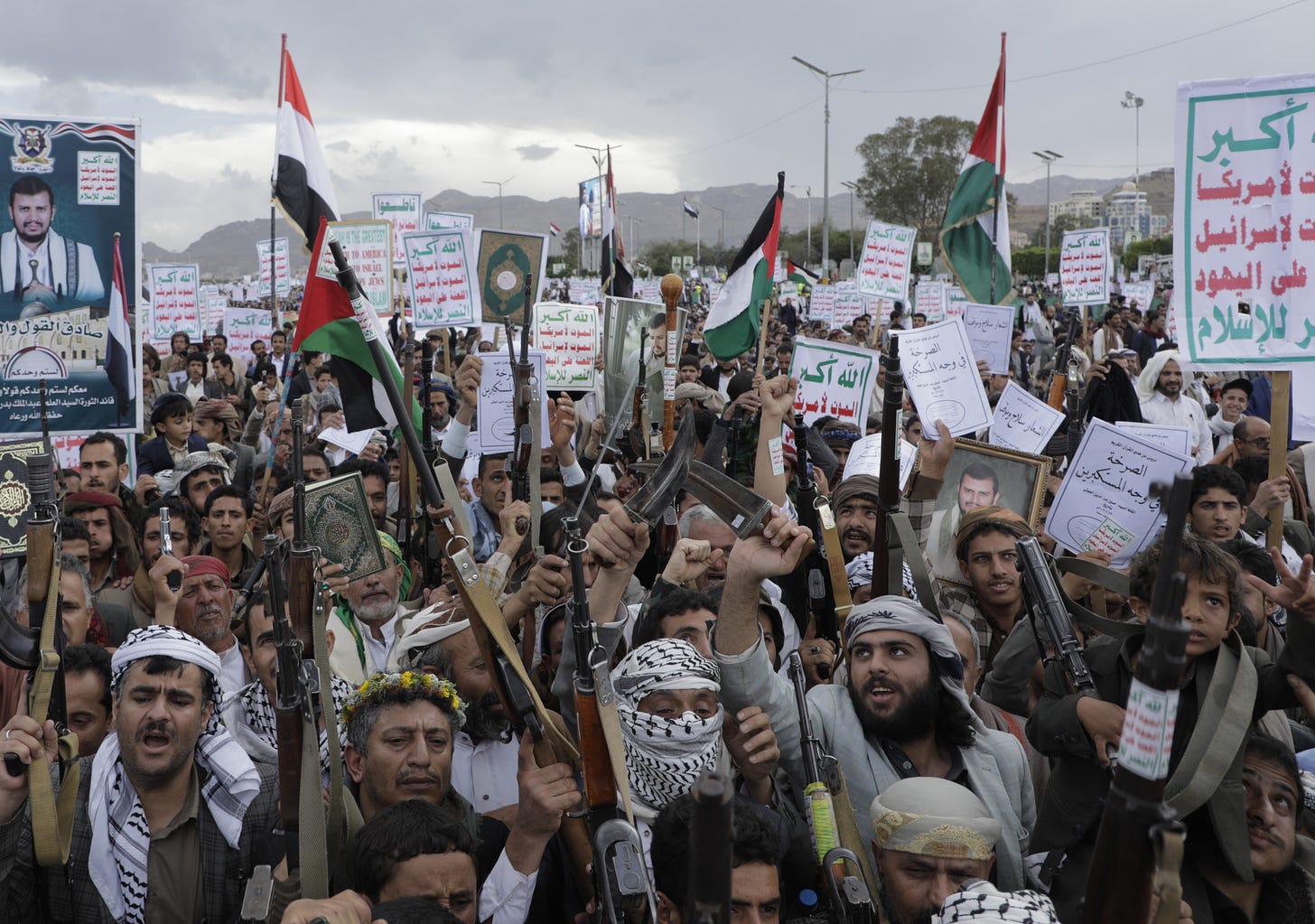The Houthis Won
An escalation justified on reestablishing deterrence has showcased US weakness. Welcome to the latest forever-war lesson Washington won't learn.

Like the Knicks outlasting the Celtics in two gritty, defense-first playoff wins in Boston, no one expected the Houthis to prevail in a protracted fight against the US Navy. But now that President Donald Trump has embraced a ceasefire, the US, like to the defending NBA champions, needs to come to terms with its self-defeating tendency to underestimate its ostensibly overmatched opponents.
Trump's announcement on Tuesday that the US would cease bombing the Houthis, not even two months after he foolishly escalated the cynical sea-and-air assault he inherited from the Biden administration, came as a surprise, particularly while Sanaa International Airport lay smoking on Monday from Israeli warplanes. But the year-long US campaign, from the start, lacked any theory of victory.
Any de-escalation in this frightening Middle Eastern moment is cause for relief, particularly as the Yemen Data Project claims US-led strikes last month alone killed 208 civilians, including 17 children, and wounded 366 more. The Houthis, formally known as Ansar Allah, frustrated the Navy, rather than defeated it outright. And Trump can say whatever he likes to portray this as a victory. But the material realities in Yemen and the Red Sea, as well as both presidents' objectives for the air-sea campaign, make the US capitulation undeniable.




